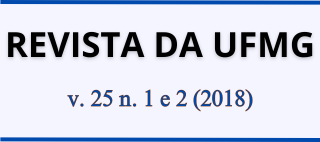The refugee crisis
reviewing the expatriated peoples’ citizenship concept through the theoretical dialogue of Hannah Arendt and Immanuel Kant
DOI:
https://doi.org/10.35699/2316-770X.2018.19521Keywords:
Refugees, Hannah Arendt, Immanuel Kant, Citizenship, RightsAbstract
This paper covers a reflection on refugee rights and the construction of the concept of citizenship based on the methodological analysis of the works The origins of totalitarism and We refugees, written by philosopher Hannah Arendt, and Perpetual peace and Groundwork of the metaphysics of morals by Immanuel Kant. Furthermore, the paper also refers to a scientific investigation of the thought of Arendt and Kant on citizenship and human rights applied to stateless people to understand the following questions: i) how fairly has the State acted on the refugee issue? ; and ii) should the State support, expel or ignore them? The purpose of this study is to establish an ideal of state action justifying the concussion of the political participation and human dignity to refugees, who have found shelter in territories of countries differing from their home nations.
Downloads
References
AGAMBEN, Giorgio. Homo sacer: o poder soberano e a vida nua. Belo Horizonte: Editora UFMG, 2010.
ALVES, Sérgio L. As ideias cosmopolitas de Marco Aurélio. Centro de História da Universidade de Lisboa. Disponível em: https://digitalis-dsp.uc.pt/bitstream/10316.2/23766/1/Cadmo20_Artigo30.pdf?ln=pt-pt. Acesso em 22 jan. de 2018.
AMNESTY INTERNACIONAL. The human cost of fortress europe: human rights violations against migrants and refugees at europe ́s borders. Disponível em: http://www.amnesty.org/en/documents/EUR05/001/2014/en/. Acesso: em 22 ago. 2017.
ARENDT, Hannah. A condição humana. Tradução de Roberto Raposo. Rio de Janeiro: Forense Universitária, 2013.
ARENDT, Hannah. A mentira na política: considerações sobre os Documentos do Pentágono. In: Crises da república. São Paulo: Perspectiva, 2004.
ARENDT, Hannah. Homens em tempos sombrios. Tradução de Denise Bottmann. São Paulo: Companhia das Letras, 2008. ARENDT, Hannah. Nós, os refugiados. Tradução de Ricardo Santos, Covilhã: LusoSofiapress, 2013. Disponível em: http://www.lusosofia.net/textos/20131214-hannah_arendt_nos_os_refugiados.pdf . Acesso em 22 ago. 2017.
ARENDT, Hannah. Origens do totalitarismo. Tradução de Roberto Raposo. São Paulo: Companhia das Letras, 1989.
ARENDT, Hannah. BOBBIO, Norberto. Direito e estado no pensamento de Emanuel Kant. Brasília: Editora da UnB, 1997.
ARENDT, Hannah. Teoria geral da política: a filosofia política e as lições dos clássicos. Rio de Janeiro: Campus, 2000.
ARENDT, Hannah. ERRA, Ricardo R. A política tensa: ideia e realidade na filosofia da história de Kant. São Paulo: Iluminuras, 1995.
KANT, Immanuel. A paz perpétua e outros opúsculos. Tradução de Bárbara Kristensen. Rianxo: Instituto Galego de Estudos de Segurança Internacional e da Paz, 2006.
KANT, Immanuel. A metafísica dos costumes. Tradução de Edson Bini. Bauru, São Paulo: EDIPRO, 2003.
KELSEN, Hans. Teoria pura do direito. São Paulo: Martins Fontes, 2000.
REALE, Giovanni; ANTISERI, Dario. História da filosofia: antiguidade e idade média. São Paulo: PAULUS, 1990.
REFUGEES AND MIGRANTS. Disponível em: http://refugeesmigrants.un.org/global-response. Acesso em 22 ago. 2017.
UNICEF BRASIL. Disponível em: https://www.unicef.org/brazil/pt/resources_10133.htm. Acesso em: 22 ago. 2017.




